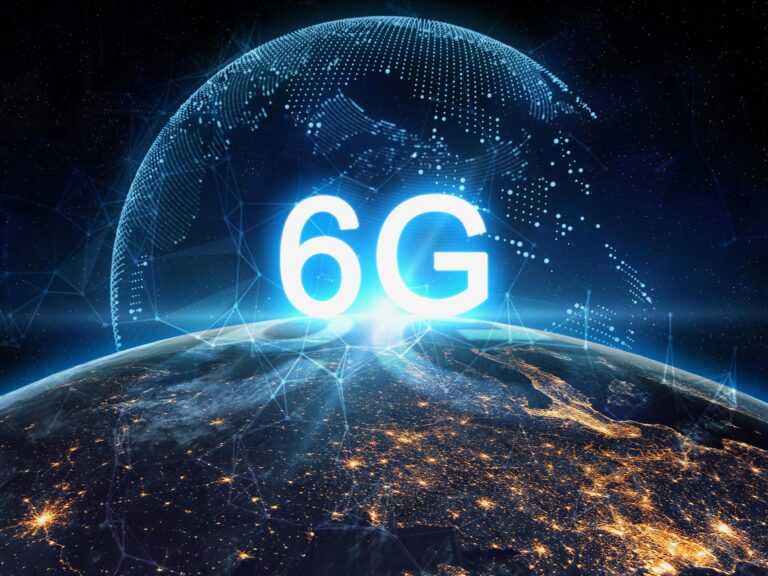Before the global adoption of sixth generation (6G) and seventh generation (7G) technologies, researchers and experts are evaluating the potential risks associated with these wireless technologies based on patterns from previous generations. has been identified.
According to researchers who attended the opening ceremony of the two-day Telecommunications Industry Risk Management Conference hosted by the association. Nigerian Communications Commission (NCC) The announcement made in Lagos on Tuesday has sparked speculation that the technology poses risks to security, health, wellness and privacy, among others.
6G and 7G are next-generation wireless technologies that are still under development.
The theme of the NCC conference is “The Evolution and Future of Risk Management in the Telecommunications Industry: Leveraging Emerging Technologies and Trends.”

In his remarks, NCC Executive Vice-Chairman and CEO, Aminu Maida, who was represented by NCC Executive Commissioner for Technical Services, Ubale Masuka, said the agency has a $75 billion It said it was taking important steps to reduce risks to the country’s telecommunications industry. New risks.
Maida said the industry is at the crossroads of tradition and transformation, with new technologies and trends bringing both unprecedented opportunities and challenges.
technical risk
Additionally, Maida said that as technology advances, there is a responsibility to address new risks, from cybersecurity threats to ethical considerations.
“While discussing the current state of 5G networks, which boast a wider attack surface due to the increasing number of connected devices and the densification of network infrastructure, it is essential to also look to the future.” he said.
“We are witnessing the dawn of 6G technology, the next frontier in wireless communications. It has the potential to revolutionize the way we do things.”
The NCC chief further emphasized the need to start thinking beyond the possibilities and new challenges that come with 7G technology.
“Anticipating and managing the risks associated with 7G requires collaboration, innovation, and a proactive approach to seamlessly integrate this technology into our interconnected world,” he said.
In his opening remarks, Kelechi Nwankwo, Head of Corporate Planning, Strategy and Risk Management at NCC, said the purpose of the conference was to “embrace the tremendous opportunities presented by new technologies and trends, while addressing the challenges facing us. “recognize the evolving risks and challenges that exist.” ”
Nwankwo cited a World Economic Forum (WEF) study on the five risks most likely to cause a major global crisis in 2024, including AI-generated misinformation and cyber-attacks. included as a significant risk.

“The first risk is extreme weather, and the third and fourth are social/political polarization and the cost of living crisis, respectively, which are social issues,” he pointed out.
new technology, trends
In his paper presentation, Mr. Afolabi Jacob, former director of the Nigeria Deposit Insurance Commission (NDIC), said the sector will benefit from new technologies such as 5G, Internet of Things (IoT), artificial intelligence (AI) and blockchain technology. He emphasized the need to take advantage of trends. , data analysis.
Jacob explained that telecom companies cannot afford not to take advantage of the opportunity to streamline operations through blockchain technology and artificial intelligence.
“In that case, four use cases—fraud detection, roaming and payments, 5G enablement, and IoT connectivity—provide an additional layer of security that allows businesses to benefit from robust levels of encryption and streamline the use of blockchain. “It shows potential. It’s their strategy,” he said.
Jacob’s presentation also addressed several conceptual issues in risk and risk management.

According to him, while 5G presents tremendous opportunities for enterprises to launch innovative services, it also brings with it complexity that expands the attack surface with multiple points of entry, makes it difficult to detect anomalies and security incidents, and leaves loopholes for hackers. There are also new cybersecurity risks arising from new security standards.
He said that Nigeria has become one of the leading countries in Africa to provide its citizens with the latest network infrastructure, 5G technology, and that NCC expects to have 500,000 5G subscribers in about 30 cities in the country by mid-2023. He added that he is doing so.
Mr. Esosa Balogun, Head of Risk Management, MTN Nigeria Communications, also presented a paper on how to collaborate and innovate for effective risk management in the telecommunications industry.
potential risks
Another researcher, Lola Adeyemi, explained in her presentation that 6G/7G technology offers increased connectivity and potential vulnerabilities to cyber threats and attacks.
Mr. Adeyemi noted that potential risks to security and privacy include unauthorized access, data breaches, cyber-physical attacks on infrastructure, enhanced tracking capabilities, and potential government surveillance.
Regarding health and wellness, she noted that there is speculation of potential health effects and exposure to electromagnetic radiation, and uncertainty of long-term medical problems, especially at high frequencies.
To reduce risk, he recommended the need for carriers to “comply with regulations and standards, act through risk assessment and management, implement data security measures, and deploy strong privacy protections.”
Support PREMIUM TIMES’ honest and trustworthy journalism
Good journalism costs a lot of money. But only good journalism can guarantee the possibility of a good society, an accountable democracy, and a transparent government..
For continued free access to the best investigative journalism in the country we ask you to consider making a modest support to this noble endeavour.
By contributing to PREMIUM TIMES, you are helping to sustain a journalism of relevance and ensuring it remains free and available to all.
to donate
Text ads: Call Willy – +2348098788999



